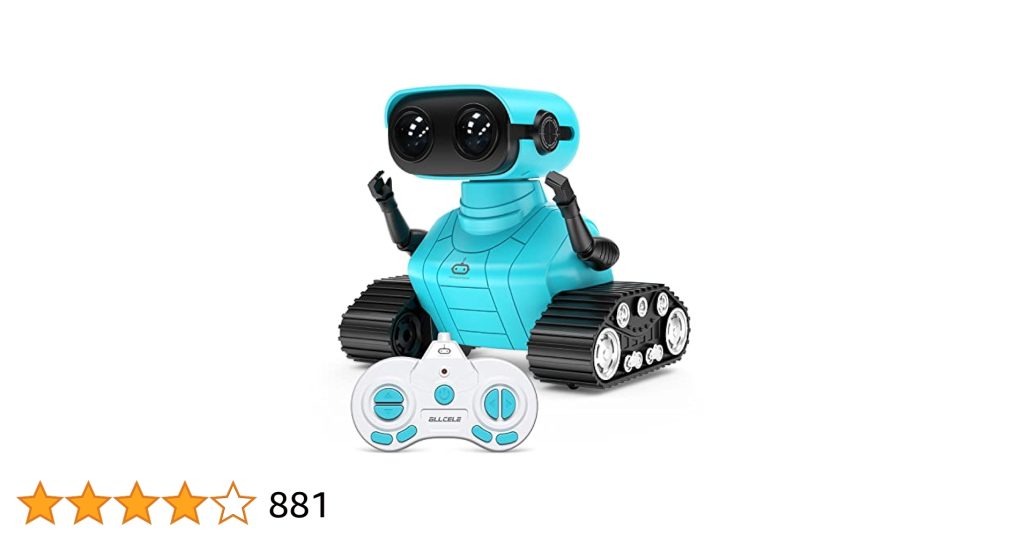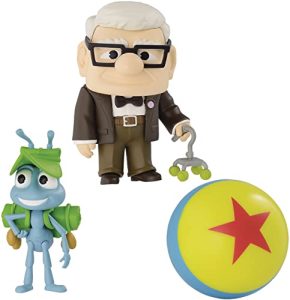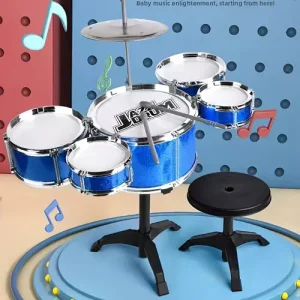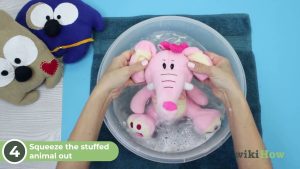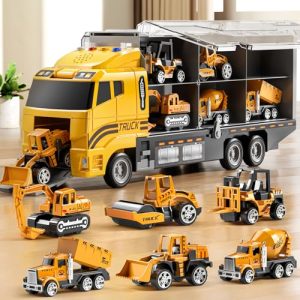Are you looking for a fun way to spark your child’s creativity and learning? Kids friendly programmable robot toys might be just what you need.
These toys don’t just entertain—they teach important skills like problem-solving, coding, and critical thinking. Imagine your child building their own robot and watching it come to life with simple commands. Sounds exciting, right? Keep reading to discover the best options and how these toys can boost your child’s confidence and curiosity.

Credit: www.techagekids.com
Benefits Of Programmable Robots
Programmable robot toys help kids learn by doing. They offer fun ways to build skills.
These toys teach creativity, problem-solving, and science skills early. Kids enjoy learning with them.
Enhancing Creativity
Programmable robots let children design their own actions. They use imagination to create new moves.
- Kids choose how the robot moves and reacts.
- They experiment with colors, shapes, and sounds.
- This play helps them think of new ideas.
Developing Problem-solving Skills
Programming robots teaches kids to fix problems step by step. They learn to test and change their code.
| Skill | How Robot Toys Help |
| Logic | Planning robot moves in order |
| Patience | Trying different codes to get it right |
| Attention | Checking the robot’s reactions carefully |
Encouraging Stem Learning
Robot toys introduce science, technology, engineering, and math. Kids learn these subjects in a fun way.
STEM skills gained include:
- Understanding simple machines
- Learning basic coding concepts
- Exploring cause and effect
Key Features To Look For
Choosing a programmable robot toy for kids needs careful thought. The right toy can teach coding and problem-solving skills.
Look at features that match your child’s needs. This guide covers the most important points to consider.
Age Appropriateness
Select a robot toy that fits your child’s age. Toys made for younger kids have simpler controls and bigger parts. Older kids can handle more complex programming and smaller pieces.
- Check the recommended age on the packaging.
- Look for toys with adjustable difficulty levels.
- Ensure the toy’s size and parts suit your child’s motor skills.
Ease Of Programming
The programming method should be easy to learn. Visual block coding works well for beginners. Text-based coding suits kids with some experience.
| Programming Type | Description |
| Block Coding | Drag-and-drop blocks for commands. Good for beginners. |
| Text Coding | Typing code using languages like Python. Best for older kids. |
| App Control | Use a smartphone or tablet app to program. Simple and fun. |
Durability And Safety
Kids can be rough with toys. Choose robots built with strong materials. Safety is key, so avoid toys with small parts for young children.
- Ensure parts are large enough to prevent choking.
- Look for non-toxic, BPA-free materials.
- Check if the toy has rounded edges.
- Confirm batteries are secure and child-safe.
Top Programmable Robot Toys
Programmable robot toys help kids learn coding and problem-solving. They make learning fun and interactive.
These toys come with easy-to-use software or apps. Kids can control the robot’s moves and actions.
Best For Beginners
Beginner-friendly robot toys use simple programming blocks. They teach kids basic coding skills step by step.
These robots often have colorful buttons or drag-and-drop coding apps. They keep kids interested and motivated.
- Easy to assemble and program
- Clear instructions and tutorials
- Safe for young children
Best For Advanced Kids
Advanced robot toys offer more programming options. They support languages like Python or C++ for complex tasks.
These robots come with sensors and motors. Kids can create custom movements and actions.
- Supports text-based coding
- Includes sensors for interaction
- Allows building and customizing
Budget-friendly Options
Budget-friendly robots provide good learning value at low cost. They focus on key programming skills.
These toys usually have fewer parts but keep coding simple and fun. They suit families on a budget.
- Affordable price with basic features
- Simple programming interfaces
- Good for short practice sessions

Credit: www.amazon.ca
Tips For Maximizing Learning
Programmable robot toys help kids learn important skills. They teach coding, problem-solving, and creativity. To get the most learning, parents and teachers can use some easy tips.
These tips make playtime both fun and educational. Setting clear goals and encouraging teamwork help kids build strong skills with their robot toys.
Setting Learning Goals
Start by deciding what you want children to learn. Goals can be simple, like learning basic commands or making the robot move.
- Choose skills that match the child’s age
- Focus on one goal at a time
- Make goals fun and achievable
- Review progress regularly
Incorporating Playtime
Playtime keeps children interested and helps them practice. Use breaks and fun challenges to keep the learning light and enjoyable.
| Playtime Activity | Benefit |
| Robot obstacle course | Improves problem-solving |
| Timed coding challenges | Builds speed and focus |
| Storytelling with robots | Boosts creativity and language |
Encouraging Collaboration
Kids learn better when they work together. Group activities help share ideas and solve problems faster.
Tips for group learning with robot toys:
- Assign roles like coder, builder, or tester
- Encourage children to explain their ideas
- Celebrate group successes to boost confidence
- Use teamwork games to create friendly competition
Future Trends In Robot Toys
Robot toys for kids are changing fast. New technology makes them smarter and more fun.
These toys will teach children new skills while they play. Let’s look at the trends shaping their future.
Ai Integration
Artificial intelligence helps robot toys learn from kids. They can talk and respond better over time.
AI allows robots to understand simple commands and emotions. This makes playtime more natural and fun.
Interactive Features
Robot toys will have new ways to interact. They will use sensors, voice, and even facial recognition.
- Touch sensors for physical responses
- Voice recognition to follow commands
- Facial recognition for personalized play
- Movement tracking for games and activities
Expanding Educational Content
Robot toys will offer more lessons in science, math, and coding. Learning will be part of the fun.
| Subject | Type of Content | Age Group |
| Science | Experiments and facts | 5-8 years |
| Math | Simple puzzles and games | 6-10 years |
| Coding | Basic programming tasks | 7-12 years |
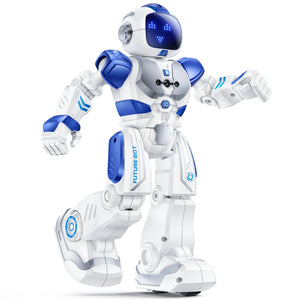
Credit: www.ruko.net
Frequently Asked Questions
What Age Group Suits Kids Friendly Programmable Robots?
Kids friendly programmable robots are ideal for ages 5 to 12. These toys offer age-appropriate coding challenges. They help develop problem-solving and creativity skills while keeping learning fun and engaging.
How Do Programmable Robot Toys Boost Children’s Learning?
Programmable robot toys enhance coding skills and logical thinking. They encourage hands-on learning and creativity. Kids learn sequencing, problem-solving, and basic programming concepts interactively.
Are These Robot Toys Safe For Young Children?
Yes, kids friendly programmable robots use non-toxic materials and have no sharp edges. They meet safety standards to ensure child-friendly design. Always check age recommendations before purchase.
Can Programmable Robots Be Used For Group Play?
Absolutely! These robots support collaborative projects and teamwork. Kids can share coding ideas and solve challenges together. Group play fosters communication and social skills development.
Conclusion
Programmable robot toys help kids learn while having fun. They teach coding, problem-solving, and creativity. These toys grow with your child’s skills. Parents can enjoy watching their kids explore new ideas. Choosing a kid-friendly robot makes learning simple and exciting.
These toys inspire curiosity and build confidence. A great way to mix play and education. Perfect for young minds ready to discover. Give children a chance to enjoy and learn.

